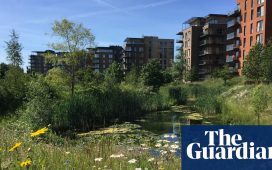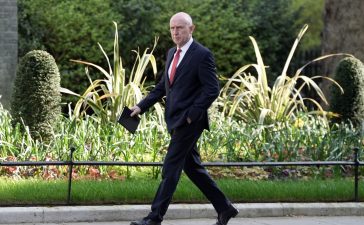More than half of the residential blocks built by the company responsible for installing the deadly cladding on Grenfell Tower have “life-critical” fire safety issues, it can be revealed.
Government figures analysed by the Guardian show the development arm of Rydon, the company that installed the flammable cladding which was the primary cause of the spreading fire that killed 72 Grenfell residents, has built 25 residential blocks across England and 14 have been found to have issues.
The data, newly published by the Department of Levelling Up, Housing and Communities, shows the country’s biggest property development firms are responsible for building at least 1,325 buildings above 11 metres that have been deemed unsafe.
The total bill for fixing these blocks is estimated at more than £2.7bn – an average of just over £2m per building.
Last year, the country’s largest developers signed up to a government scheme in which they agreed to take responsibility for addressing life-critical fire safety issues on all of the buildings taller than 11 metres erected in the last three decades.
Life-critical safety issues are mainly those connected with flammable cladding on the outside of a building, but can also relate to fire-stopping measures in walls, and fire compartmentation, where construction tries to limit the spread of fire from room to room.
The scheme is designed to ensure developers use fire safety assessors to identify the blocks that need work, and cover the cost of remediation.
Rydon has already assessed all of its 25 buildings, with 14 requiring work. The figures, covering the end of November, show it has started remediation on seven of the 14 blocks, but completed only two.
The company is listed by the government as part of the remediation scheme as Rydon Group Holdings, which owns Rydon Maintenance, the firm responsible for the Grenfell refurbishment.
Evidence given to the inquiry into the Grenfell fire, for which a final report is pending, has suggested the company relied on other subcontractors to check the compliance of the materials being used, and that it took £126,000 of the £419,000 saved by switching the cladding to cheaper, more combustible material.
In a statement to the inquiry following this, Rydon’s QC, Marcus Taverner, said the company was operating in an “orthodox manner” and “following industry practice” in discharging the responsibility of compliance knowledge on to specialist companies.
Rydon recently made a £27m provision in its accounts for its part in a civil settlement with 900 people affected by the fire, in a payout reportedly worth £150m.
It was one of the last developers to sign up to the government’s remediation scheme, joining in September last year, six months later than most of the other participants. The housing secretary, Michael Gove, had threatened those who failed to sign up with a nationwide ban from the housing market.
Rydon, which has a turnover of £52m a year, and is headed by the chief executive, Bob Bond, repeatedly argued it believed it was a medium-sized housebuilder, and that it would only engage when the government extended the contract to all small- to medium-sized (SME) companies.
The latest developer remediation figures show the scale of the number of dangerous buildings that need fixing across England, and the massive remediation programmes the biggest housebuilders must carry out.
The 52 developers must fix 1,325 buildings over 11 metres high between them. Only 262 (19%) of buildings have had work completed, and the work on 872 (65%) has yet to be started.
The majority of remediation work will involve the removal of dangerous cladding from apartment blocks.
Bellway is among those facing the biggest remediation bills. The figures state the builder has inspected 274 of its 502 buildings so far, and found 195 need remediation work.
Taylor Wimpey has inspected 257 of its 384 buildings and found 171 need work.
A spokesperson for the Home Builders Federation, which represents the UK’s major house builders, said: “Residents in blocks built by UK house builders can be reassured that there is a pledge in place to remediate their buildings.
“UK house builders have demonstrated their commitment and are providing £2bn to remediate their own buildings and being taxed £2.5bn to fund those built by foreign companies and other parties.
“House builders are not the only party involved in the remediation process and are reliant on building owners commissioning a survey of required works, all of which takes time.
“Government now needs to deliver on its commitment to get contributions from foreign builders and the material providers at the heart of this crisis.”
The Guardian approached Rydon for comment.











